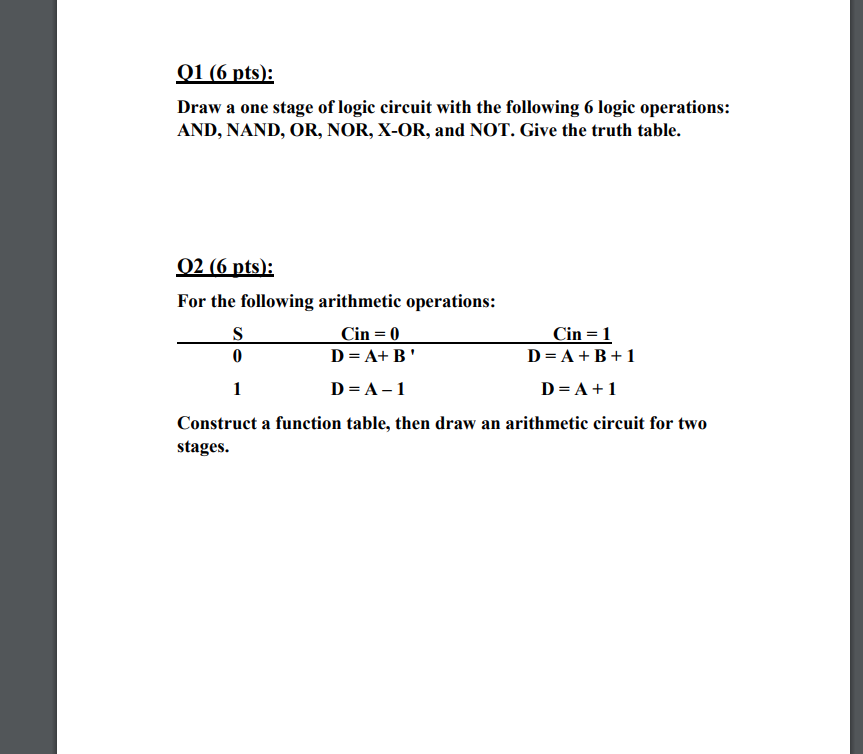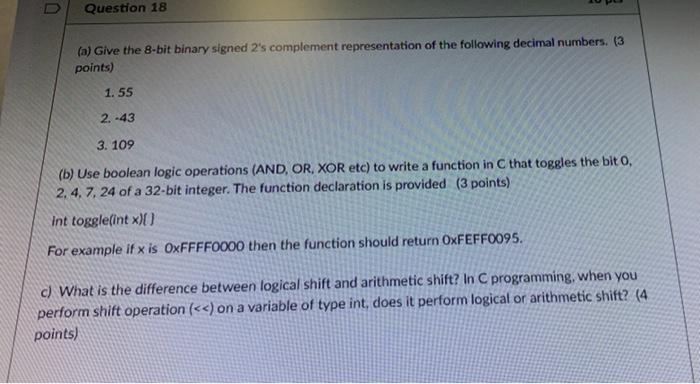Question
What is the vague, most noteworthy, constant data move rate feasible between adjoining center points? (Acknowledge all lines between any arrangements of center points are
What is the vague, most noteworthy, constant data move rate feasible
between adjoining center points? (Acknowledge all lines between any arrangements of center points are
for the most part a comparative length and grant a reasonable timing edge for security.)
[5 marks]
A data pack structure is by and by constrained on the system, by which packages of 8 bytes
of data may be sent by a center point to a neighbor occasionally. Pipes are used
bi-directionally, but following an alternate way between bundles. All lines are to be
at ecological strain when there is no data to send.
(c) Suggest how the start and end of a group not permanently set up.
(a) Write work in a programming language of your choice that takes a float and returns a float with the property that: given zero,
tremendousness or a positive normalized floating point number then, its result is the
smallest normalized floating point number (or boundlessness in case this is inconceivable)
more significant than its conflict. You could acknowledge limits f2irep and irep2f
which map between a float and a comparative piece configuration held in a 32-bit number.
(b) Briefly figure out how this routine can be loosened up similarly to oversee negative
floating point values, reviewing that the result should be more conspicuous without fail
than the conflict.
(c) Define the considerations of changing botch and truncation slip-up of a floating point
estimation including a limit h that mathematically should will frequently zero.
(d) Given work f executing a differentiable limit that takes a floatingpoint dispute and gives a floating point result, a computer programmer completes a
work
f
0
(x) ≈
f(x + h) − f(x − h)
2h
to calculate its subordinate. Using a Taylor advancement and so forth, check
how changing and truncation botches depend upon h. You could hope to be essentially all
mathematical auxiliaries of f are inside a huge level of 1.0.
(a) Most liquid valuable stone introductions parcel a pixel into three sub-pixels concealed red,
green, and blue. Sort out why this is so.
(b) Some liquid jewel shows segment a pixel into four sub-pixels concealed red,
green, blue, and white. Figure out why this might be useful, what benefits it
has, and what restricts it has.
(c) Compare and separation half-molding and misstep scattering. Recall for your reaction
an explanation of the conditions wherein each is better compared to the next.
(d) One procedure for against partner is to test at significant standard, n × n higher than
the last picture, and subsequently to average each square of n × n pixels to give single
pixel regard. Look at the advantages and disservices of using
(I) Gaussian darkening, and
(ii) center filtering.
(a) Given the going with project area in C or Java
static int a = 3;
static int f(int x, int y) { int z = a+x; ...; return ... }
figure out how the four factors (a, x, y and z) are gotten to from inside f
at the direction level for a plan like MIPS, ARM or x86. Pay
explicit thought with respect to how and while amassing is allotted for these elements,
also, which system parts of a standard assemble interface and-execute model
are related with picking the direction and concluding the run-time address
assessment.


01 (6 pts): Draw a one stage of logic circuit with the following 6 logic operations: AND, NAND, OR, NOR, X-OR, and NOT. Give the truth table. 02 (6 pts): For the following arithmetic operations: Cin = 0 Cin = 1 D=A+ B' D = A + B + 1 D=A-1 D = A + 1 Construct a function table, then draw an arithmetic circuit for two stages. S 0 1
Step by Step Solution
There are 3 Steps involved in it
Step: 1

Get Instant Access to Expert-Tailored Solutions
See step-by-step solutions with expert insights and AI powered tools for academic success
Step: 2

Step: 3

Ace Your Homework with AI
Get the answers you need in no time with our AI-driven, step-by-step assistance
Get Started


